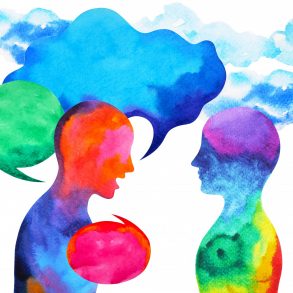For Americans everywhere, the 4th of July is spent honoring our country’s freedom. Within this celebration, we also honor those who have, and continue to, serve in our military. What is often forgotten, or never realized, is that for some veterans our loud displays of patriotism can negatively impact their well-being.
Having said that, it is also important to not make assumptions about all military members, and to have an open mind and open communication when it comes to our desire to both celebrate the holiday and be courteous to our friends and neighbors.
As you begin planning your 4th of July celebrations, take into account the veterans and military members in your community who might appreciate additional consideration. While my husband served six years in the Marine Corps, I am no expert on veterans’ issues, so I reached out to someone who is to help educate all of us on how best to be supportive.
MORE: Pet safety tips for 4th of July
Kirsten Belaire, Director of Behavioral Health at Mt. Carmel Service Center, agreed to speak with me as part of her constant mission to provide support to veterans and military personnel. Our discussion began with the fact that some veterans might face challenges on holidays such as the 4th of July. “Many veterans I work with struggle with the loud noises that occur during the 4th of July holiday. It can be difficult for some veterans to not have physiological responses — startled responses, jumping, tensing, defensive moves — when loud noises occur. Their military training reinforces reactive responding. Some also struggle with flashbacks when loud noises or bright explosive lights happen,” she explained.
Most individuals want to be cognizant of veterans in their community who may be affected by loud celebrations, but you might be unsure on how to proceed. Belaire shared her thoughts on how those of us in close proximity to veterans should handle this. “Remember, veterans dedicated their lives to protect us, and although some (like any other part of our population) struggle with mental health issues, that does not mean they cannot enjoy the 4th of July celebrations. Communication is a great tool in exploring what veterans’ and community’s needs are. Consider discussing plans for fireworks with neighboring veterans and getting their feedback. Sometimes compromise is an effective tool — for example, agreeing to end all fireworks by 10 p.m. Knowing what to expect can reduce anxiety,” Belaire says.
Even with communication, having some knowledge as to how to identify an individual who is struggling and needs assistance is important. “Signs that someone is struggling vary based on a person’s individual struggle,” Belaire noted. “Prior to the celebration or event, it is best to ask them what some of the symptoms are that they might experience. For example, ‘What are some of the things you experience when you are around fireworks?’ You can also ask, ‘How would I know if you were experiencing a flashback?’”
However, Belaire was also quick to point out that not all veterans experience the same responses. “Lumping all veterans into one category may not be the most appropriate response,” she says.
How, then, can family, friends and neighbors support veterans, not only on the 4th of July, but in general? “Reducing assumptions and opening yourself to curiosity is a great way to start,” Belaire says. “For example, instead of assuming someone might struggle with the 4th of July celebrations, consider being curious and asking that someone how they feel about the celebrations and what, if anything, they might need. Coming from a caring and curious place within ourselves can produce great results.”
Belaire emphasized that, if someone does seem to need additional support, it can usually be found within your community. “Remember, there are mental and behavioral health professionals in our communities willing to help you and your loved ones. Organizations like Mt. Carmel Veterans Service Center provide low-no-cost behavioral health counseling for our military/veteran community, their families and caregivers,” she said.
MORE: Throwing an epic 4th of July party: A beginner’s guide
If you’ve never had frank, open conversations before with the veterans in your life, now seems like the perfect time for better communication, letting go of assumptions, and asking questions with the goal of listening to understand. This is sound advice for all of us as we look to more effectively support our family members, friends and neighbors who have given so much.









